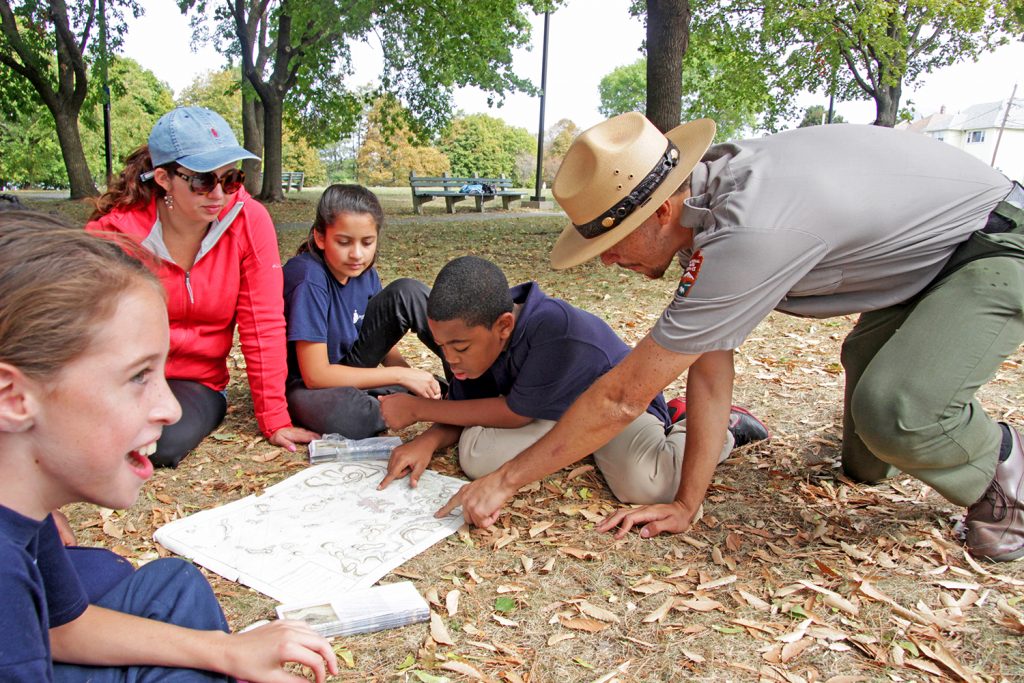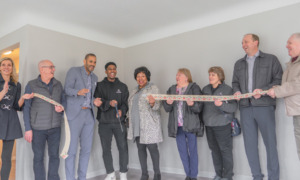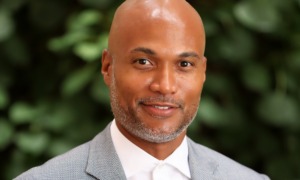When kids first step into the big 10-person canoes at Canoemobile, some are panic-stricken.
Julie Storck has seen kids cry in fear.
“Sometimes they’re really afraid,” she said.
But they sit down, take up a paddle, go with the flow and then calm down.
“They end up loving it,” she said. “It’s pretty powerful. I’ve seen this happen over and over again.”
Canoemobile’s goal is to close the achievement gap between rich and poor kids. The program bolsters academic skills and helps kids develop socially and emotionally, Storck said. It also connects kids to mentors and role models, while building their connection to the outdoors, she said.
At Edison High School in Minneapolis, which has a diverse student body with Mexican-American, Somali and Hmong teens and 92 percent qualify for free or reduced meals, about 100 students a year go on outdoor activities. English teacher John Strand and fellow teacher Randy Baum created the Edison Outdoor Club several years ago. The club takes Saturday day trips as well as longer summer excursions.
Canoemobile provided its big canoes for a four-day trip last summer in Voyageurs National Park on the U.S.-Canadian border.
“They work with us throughout the year,” Strand said.
Storck is the associate director of the Minneapolis, Minnesota-based program that connects urban youth to nature via canoe trips.
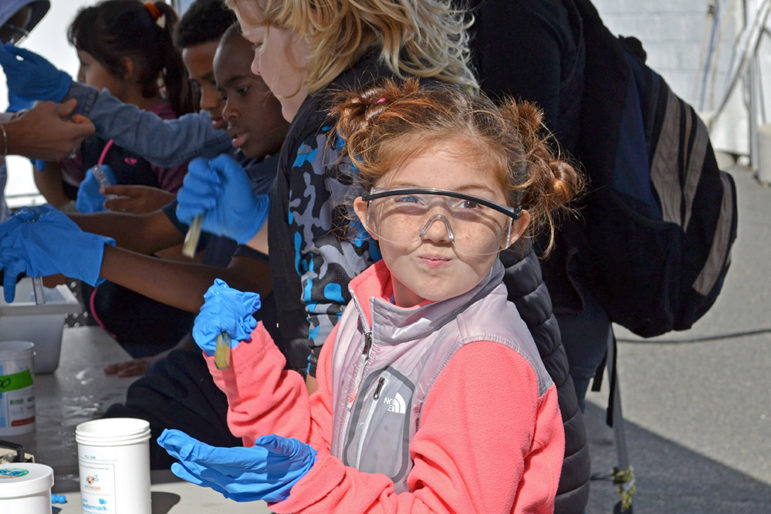
Canoemobile
Canoemobile connects kids to nature, offering science and other lessons along the way.
But Canoemobile offers more than canoe trips.
The canoe is a “floating classroom,” according to the organization.
Kids test water quality and measure bridges, Storck said. They paddle to historic sites such as Fort Snelling State Park in St. Paul, Minnesota, where they learn the history of the place. They may fish, identify wildlife and go hiking.
Canoemobile works with underserved kids from the sixth to 12th grade. Nine kids go out in each canoe with a Canoemobile trained guide, who shows them how to paddle.
“Everyone paddles together,” Storck said.
The 24-foot Voyager canoes are hand-crafted in St. Paul. The organization has a fleet of them, allowing whole classrooms and large groups to go out together.
The program offers a progression of experiences, Storck said. The first is a one-day trip on local waters. Kids may also go on overnight camping trips or on multiday experiences in wilderness areas.
When kids get a chance to try something new and meet a new challenge, it raises their confidence and their ability to face challenges, Storck said.
“It’s pretty powerful,” she said.
The program is offered in more than 40 U.S. cities and was one of four summer learning programs receiving the 2017 New York Life Foundation Excellence In Summer Learning Award and Founder’s Award.
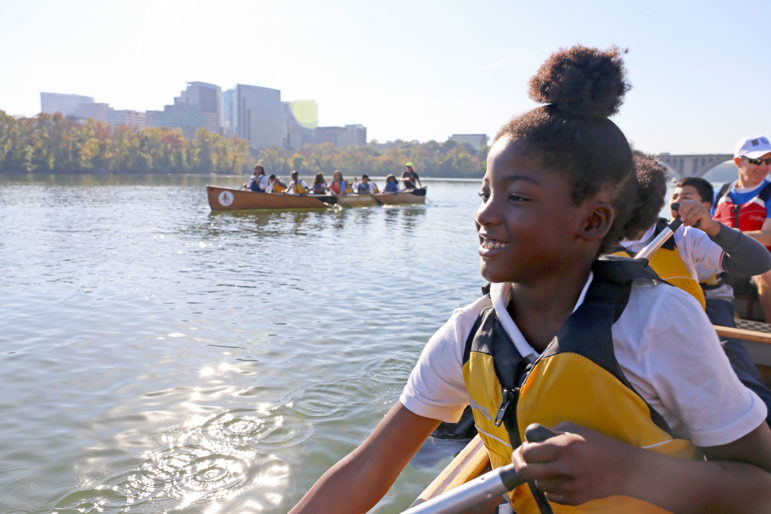
Canoemobile
Kids take to local waterways in 10-person, 24-foot canoes through the Canoemobile program based in Minneapolis. Trained guides lead activities in which kids learn about the environment and history as they visit various places.
Canoemobile is part of a larger adventure travel organization known as Wilderness Inquiry, which began in 1974 after two teachers in Stillwater, Minnesota, took 14-year-old students on a winter camping trip to Boundary Waters Canoe Area Wilderness. Buoyed by the experience, the two went on to take other groups on wilderness excursions, including special education students, people with disabilities and adjudicated youth from the Washington County Courts.
Wilderness Inquiry uses outdoor experiences to inspire personal growth in people from all walks of life, according to its website. Outdoor experiences also enhance a group’s sense of community and create a greater awareness of the environment, according to the website.
Ten years ago, Wilderness Inquiry started Canoemobile.
“It seemed like a crazy idea,” Storck said.
The goal was to connect 10,000 kids to the Mississippi River, which flows through Minneapolis-St. Paul.
The organization began taking kids from Minneapolis Public Schools on river trips.
Today the program offers trip to schools, youth groups, community and faith-based organizations. Through partnerships with other organizations, it has expanded across the United States.
FOR MORE INFORMATION AND FREE RESOURCES ON SUMMER PROGRAMS, GO TO THE YOUTH TODAY OST HUB.


